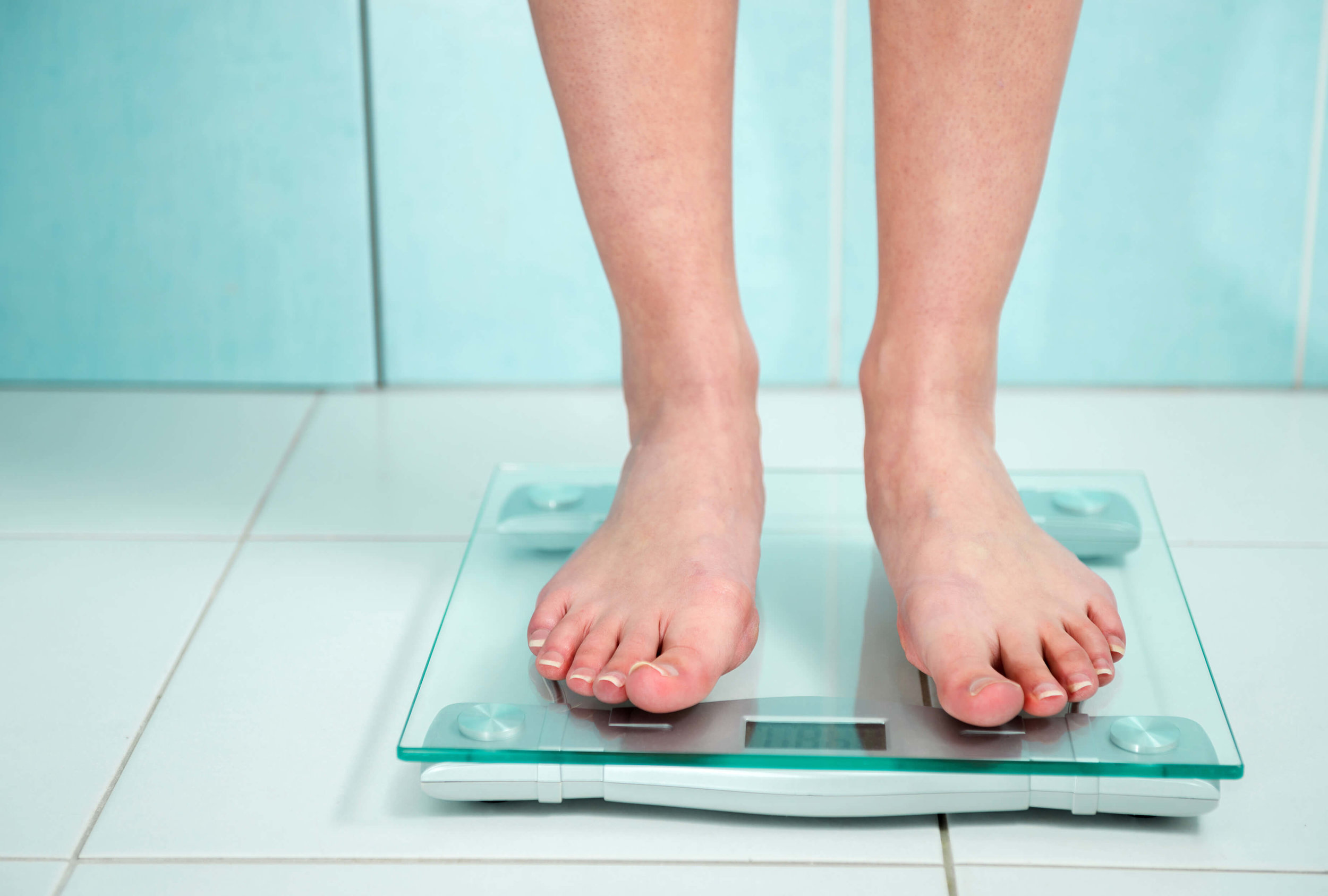If you measure your results solely by the number on the scale, you may be in for a frustrating journey. Do you know the feeling of eating well, turning down the treats, and exercising every day and then seeing an increase on the scale at the end of the week? WTH?
I know it well, and it’s frustrating enough that some people to throw in the towel altogether. While the scale can provide feedback regarding your progress, it doesn’t tell the whole story, and depending on how you interpret the results, may reveal an inaccurate one. Screw the scale and focus on non-scale victories instead.
WHY THE SCALE DOESN’T MATTER
THE SCALE IS A ONE TRICK PONY
The scale tells one story: your body weight. Your body weight is made up of fat, lean body mass which includes muscle, bone, and organs, and water. If you lose fat and gain muscle, the scale weight may remain unchanged, while your body composition has improved. The goal should always be fat loss, not weight loss.
We need to do our best to preserve (and build) our muscle mass while we lose weight. The more muscle we carry around, the higher our metabolism, which means we burn more calories 24 hours a day.
(It’s nearly impossible to gain too much muscle without drugs, especially for women, so it’s nothing to fear. Once you reach your desired muscle mass, you change your training to avoid putting on more. Women don’t accidentally get too bulky.)
SHOULD IS A FOUR LETTER WORD
People often have unrealistic or outdated ideas of what that number “should” be—our bodies change, so your bodyweight before you started college, may not even be possible after two kids. It’s not to say we can’t get into great shape, we definitely can (even better than before), but the number of scale may not reflect the same as it did back then. It’s not the scale weight we should focus on, but instead our muscle and body fat percentage. I am fitter than my college-aged days, but my scale weight is higher now, and that is a positive progress marker.
FLUCTUATIONS SKEW THE RESULTS
Your body weight can fluctuate based on factors that have nothing to do with fat loss. Water retention, salt intake, the contents of your stomach, a woman’s cycle, and bowel movements (or lack thereof) can all impact scale weight, but have nothing to do with how much fat you have gained or lost. If the scale jumps up three pounds overnight, I can assure you that you did not gain three pounds of fat in one day. If you lose three pounds in one day, it might feel good, but it surely isn’t all fat loss in one day.
FAT LOSS MATTERS, NOT WEIGHT LOSS
I said it once before, but it bears repeating now: When on a weight loss journey, the focus should always be on fat loss, not weight loss. If we lose muscle with fat, that is detrimental to our long term success because it’s harder to maintain weight with lower muscle mass and the risk of a weight rebound increases.
Muscle tissue burns more calories at rest than fat, so a loss of muscle means a slower metabolism. Preserve and build muscle with adequate protein and regular resistance training. It may not make the number on the scale go down, but your body composition will improve, which is the ultimate goal (more muscle/less fat). A better way to track your weight is to measure your body fat percentage.
Someone might jump for joy at a five-pound loss on the scale, but not realize that loss included muscle, which is not a positive result. Relying solely on the scale doesn’t tell the whole story.
FIVE WAYS TO MEASURE RESULTS THAT MATTER (WITHOUT THE SCALE)
BY HOW YOUR CLOTHES FIT
When you lose fat and gain muscle, your pants size may go down while your weight stays the same (or goes up). How your clothing fits is a positive progress marker! Muscle is denser and takes up less space in the body than fat, so with every pound of fat you lose and every pound of muscle you gain, the scale may remain the same, but you’ll appear smaller.
BY TAKING MEASUREMENTS
Taking body measurements is a more accurate way to measure progress. Are your biceps bigger and your waist smaller? Who cares what the scale says when you have these other positive markers of change? Stay tuned on Friday when I’ll show you how to take your body measurements.
BY PAYING ATTENTION TO HOW YOU FEEL
The bottom line is if you are exercising regularly and eating healthful foods, you are making progress internally before you start to see visible results. When you feel better, sleep better, have more energy, a clearer mind, and higher self-esteem from working out, then those results are worth it in themselves. Your future body composition changes will be a welcomed side-effect. Keep going.
BY TRACKING PERFORMANCE IMPROVEMENTS
Chances are if you get your body moving regularly and feed it healthfully, you’ll start to see a noticeable improvement in performance, even if the scale isn’t budging. You’ll begin to be able to run longer or faster with less effort, lift heavier weight than just a month ago, or climb the stairs with six grocery bags without getting out of breath. Take a bi-weekly or monthly fit test to track increases in performance (stay tuned on Wednesday for my fit test you can try at home). Performance markers remind us that our hard work is paying off.
WHEN BLOOD MARKERS IMPROVE
Exercising regularly and eating healthful foods will improve our health, no matter what the scale reads. When you visit your doctor for your annual blood test, you'll likely find positive changes in cholesterol levels, blood pressure, and blood sugar. If you can reduce or get off medications due to lifestyle changes, you’ve achieved a great result. If you always keep health as your top priority, and not aesthetic or scale weight goals, you’ll be on the right track.
If the scale is the source of frustration, put it away and focus on non-scale victories to measure results. If the scale isn’t budging it doesn’t necessarily mean progress is plateauing. You can celebrate positive outcomes and continuous improvement without the scale. When you take the focus off that arbitrary number on the scale and focus on your overall well being, your results will soar along with your confidence.
Did you like this post? Do you know someone who might benefit? It helps me when you share with your friends and followers on Facebook, Twitter or Pinterest.
Questions? I’d love to help.













In 2017, while working a corporate job I wrote a blog post dated five years into the future. I described my dream life in vivid detail, right down to the breakfast I'd eat and the way my business would feel. Then, I let it sit in my drafts for nearly a decade.
Reading it now in 2026 is surreal. While the timeline took longer than I imagined, the feeling of my life today is identical to that vision. I am sharing the unedited 2017 draft today as a lesson in the power of knowing your "why" and daring to write it down.